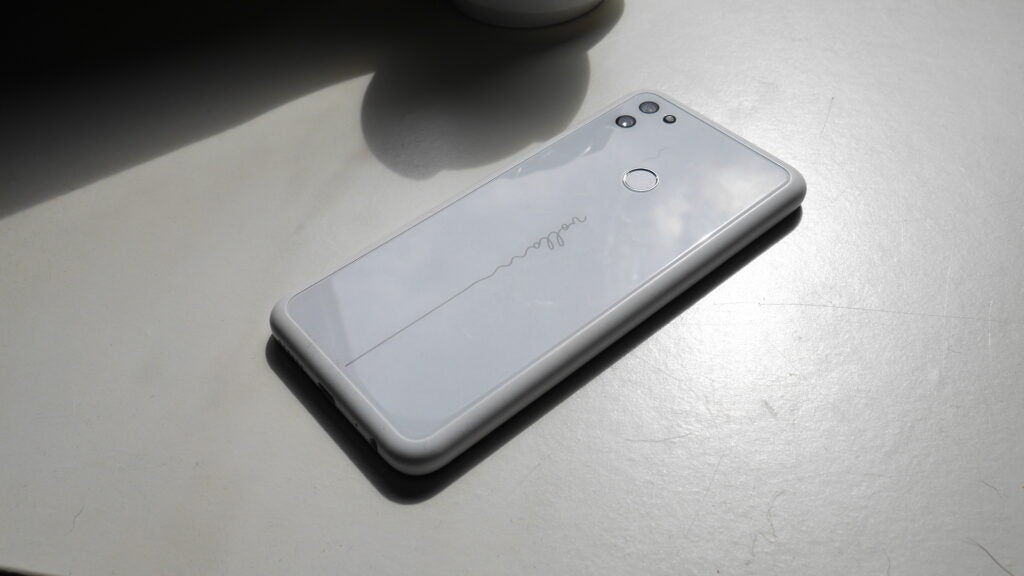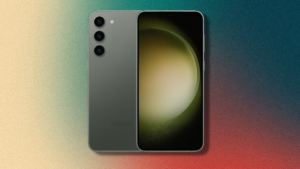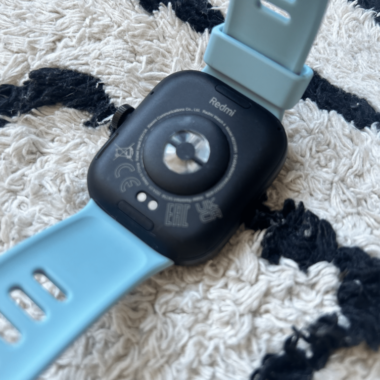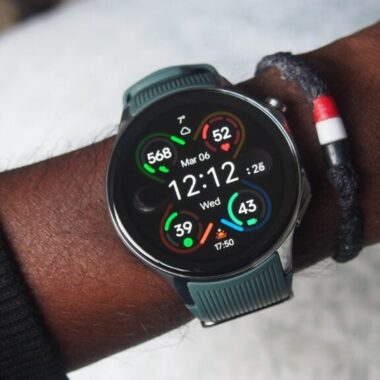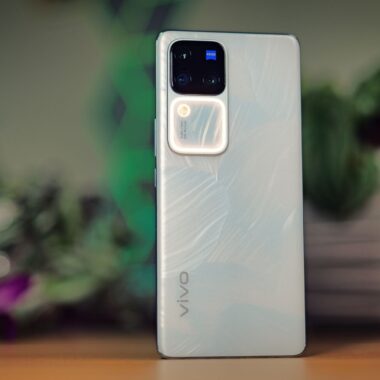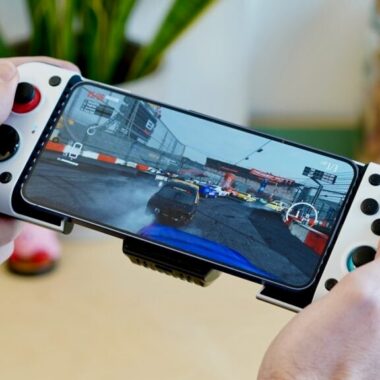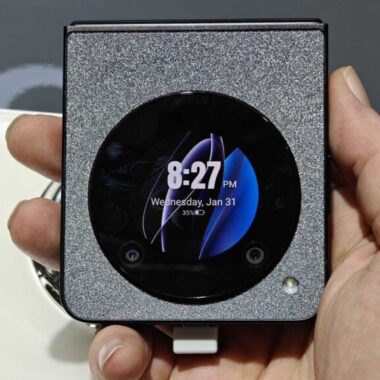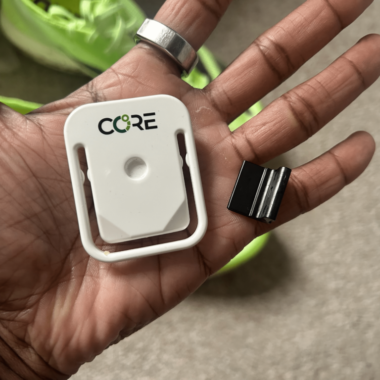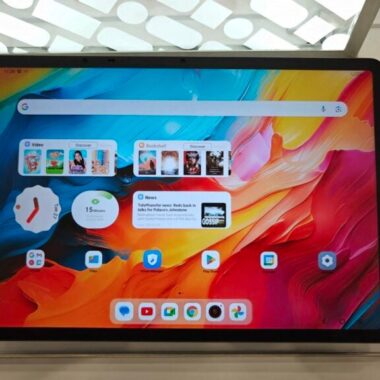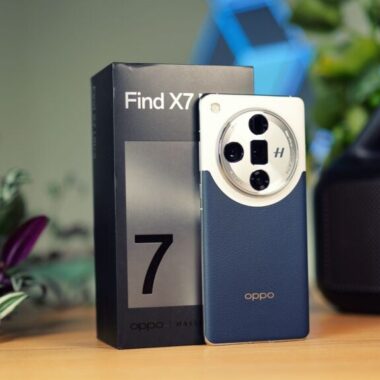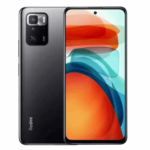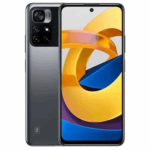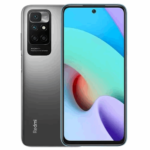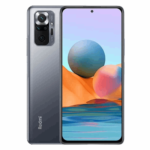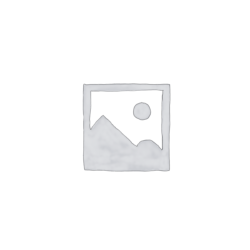Verdict
Privacy is something that is hard to put a price on, but the Volla Phone 22 tries. It offers the opportunity to keep your data out of the hands of Google, but with a usability trade-off. That this trade-off isn’t as steep as might be expected is a big triumph. But for better cameras, a more powerful processor and a more modern display, the Volla Phone might have been an unexpected recommendation.
Pros
- Brilliant battery life
- Can run different operating systems easily
- Privacy-focussed software
Cons
- Often slow performance
- No high refresh rate
- Mostly mediocre cameras
-
Privacy focussedThis is a smartphone runs a version of Android without any Google apps. -
Removable back and batteryThe Volla Phone 22 brings back one of the best features of yesteryear. -
Brilliant battery lifeThis is a smartphone that will make it to the end of a second day for most people.
Introduction
Ask a phone nerd what their ideal device would look like and the wish list is usually quite similar. Most will say, a MicroSD card slot and a headphone jack, while others might add a removable battery and a replaceable back cover.
There are some still who might also say, no Google, no Apple, something different.
The Volla Phone 22, released by German company Volla Systeme, is everything on that list. Though it has a modern tall/thin design and a teardrop notch, it also has expandable storage, a removable back and a replaceable battery. For some readers, that will be reason enough to spark interest, but that isn’t all it offers. This is a rare device that comes with Android sans Google, completely scrubbed of every product offered by Mountain View, working only with open-source software.
That means no Gmail, no YouTube, no Play Store and more – a bold gambit, but then Volla’s goal isn’t to make a mainstream smartphone, instead it is to make one focussed on a single quality alone: Privacy.
Where it is placed in the market is then moot, as you will either have read the above and thought “that’s the phone for me!” or “not interested”. It is for you or it isn’t, and so for the former, the question then is simple: is it as good a phone as it is interesting as a concept?
Read on for the full review.
Design and screen
- Flat 6.3 inch 60Hz IPS LCD screen with 1080p resolution
- Rear is encased in black or white glass
- Case is made from white or glossy transparent plastic
A single look at the Volla Phone 22 reveals one thing; design was not a major focus. That isn’t to deny that it looks modern or good, but simply that there isn’t much interesting about it at first glance.
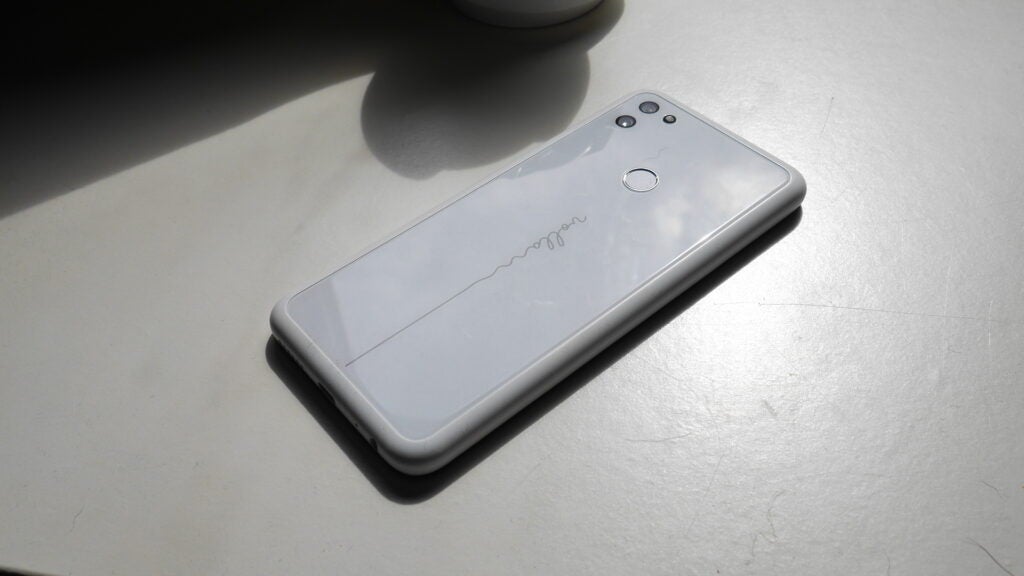
Coming in either black or white, it has a certain boardroom chic about it, and is an interesting throwback in some ways. It is quite chunky, but that allows it the freedom of keeping camera lenses flush with the back. The phone is made entirely of plastic (apart from a glass panel on the rear), and though this doesn’t feel especially premium, it does have some positive trade-offs when it comes to durability.
A lot about the Volla’s utilitarian design becomes apparent when considering its origins as a Kickstarter project that raised £100,000 in 2022. This financed the purchase of white-label Gigaset GS5 devices, which were then customised with a backplate and software (Volla OS). This is standard practice for smaller manufacturers, but it explains a lot.
Regardless, what is really interesting about the device isn’t on the surface, but underneath. On the bottom right of the Volla Phone 22 there’s a little fingernail hole to prise off the back panel (something this author hasn’t done with a new phone since 2016), revealing a removable battery, two nano-SIM slots and a MicroSD card slot underneath.
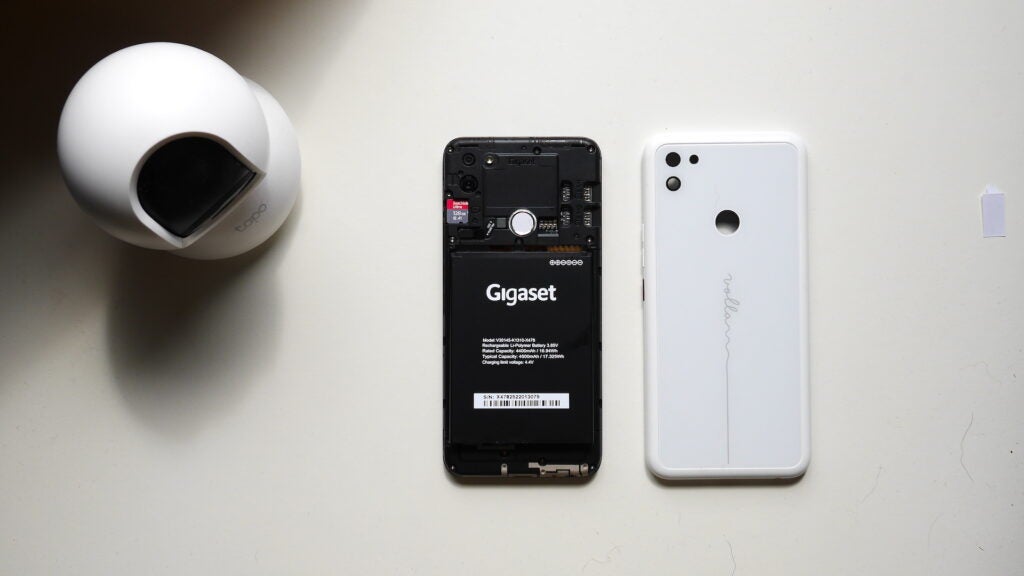
Being able to remove the battery opens up the option to ‘hot swap’ in a charged battery, handy for travellers, and the dual-SIM slots will be useful for the same. The MicroSD card slot allows for another of the Volla Phone 22’s unique features, the ability to change the operating system – more on that later.
Taken against other smartphones, it doesn’t look bad but maybe a little boring. At 10mm, it is thick, and at 210g it is a bit dumpy, though those are tradeoffs that come with having a removable back.
Coming to the display, there’s not a lot to say. Normally companies would have attached a boatload of marketing acronyms here to try and drum up interest, but not so with the Volla Phone 22. Here we know the screen is 6.3 inches, 1080p in resolution and that’s roughly it. There’s clearly no high refresh rate in use, so it is 60Hz, and the black levels are more reminiscent of LCD tech than OLED.
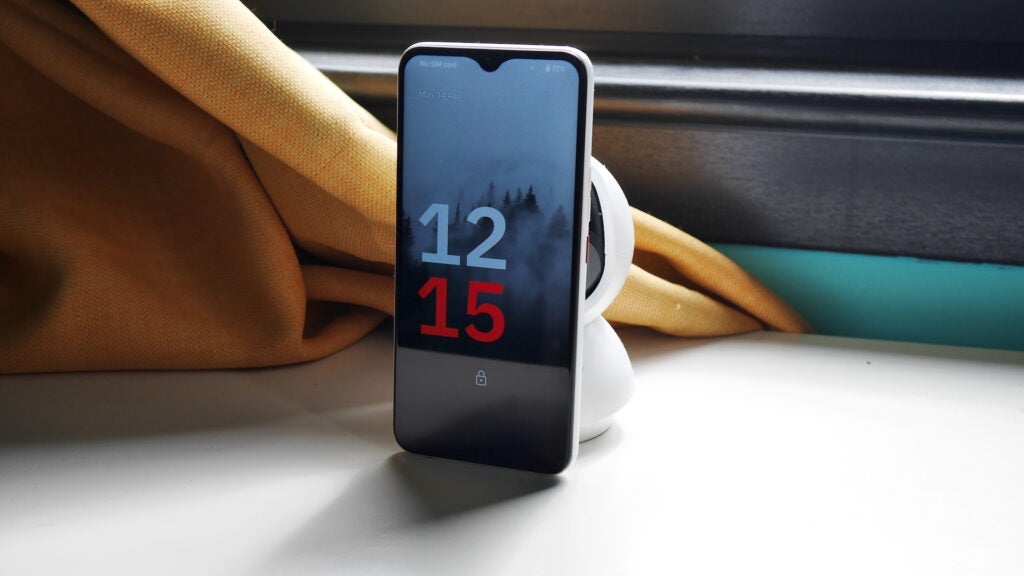
All of these metrics exist to pit phones against one another, but as before the Volla isn’t a normal phone. By most stretches its display gets the job done, no more. It is colour-accurate, high enough resolution, gets just about bright enough to use in strong sunlight and dim enough to read in bed. That’s it; no records broken.
Cameras
- Rear main camera has 48MP and a flash, flanked by an 8MP ultrawide
- Front facing camera is 16MP and fixed focus
What is the case for the screen is also much the same for the cameras. On the rear there’s a 48MP main sensor, flanked by a 8MP ultrawide snapper and a 16MP selfie camera on the front. There are no claims of amazing camera performance, instead we are merely told they exist.
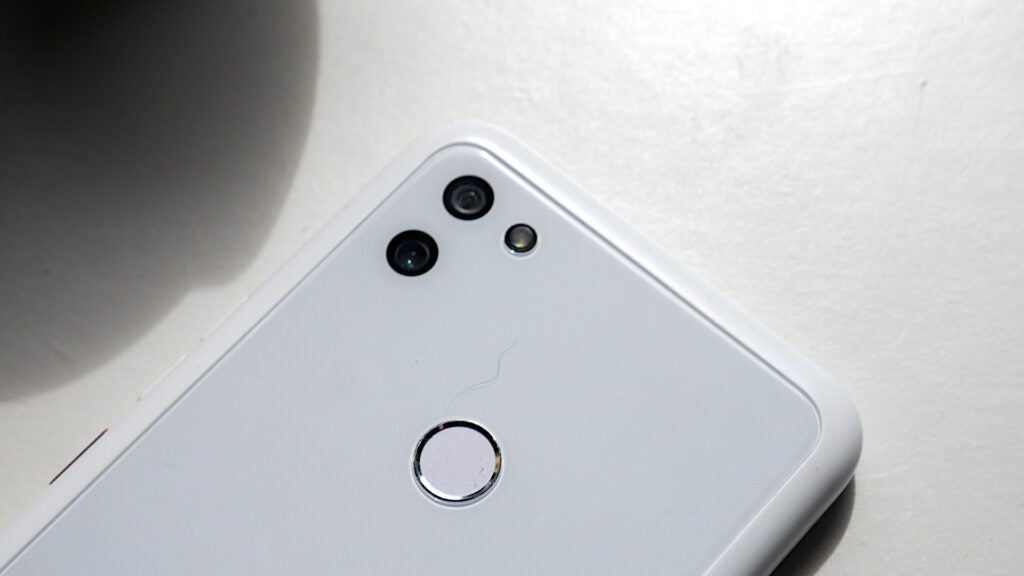
This approach holds true with the camera app. It’s a little slow, and capturing HDR images causes a fair bit of shutter lag, though this improved with an update during the review process. There are two modes, photo and video, and nothing like a Night mode or a Portrait mode. This is the bare minimum of a camera app, here to exist and nothing more.
Surprisingly, images captured in good light are decent, showcasing nice colour and enough detail for the most part. A big problem is with the dynamic range. The HDR function is plodding and inaccurate, in the same way things commonly were before the Pixel line shook the smartphone market up. Low-light isn’t worth discussion, here the Volla Phone 22 exhibits performance reminiscent of a device from 2013.
The above is true of images taken with the selfie camera and ultra-wide angle sensor. The Volla Phone 22’s weaknesses are in software processing and can improve with time (no promises), but it is not a camera-first smartphone.
Performance
- Runs a MediaTek Helio G85 processor
- 4GB of RAM and 128GB of storage by default
- Runs Android 12 based on Lineage OS
For all that’s been said in this review about the Volla Phone 22, I still haven’t scratched the surface of its most interesting feature: this phone can swap operating systems.
What that means is, using an integrated software tool, it is easy enough to partition a MicroSD card, download a recommended software image, install it and then use it nearly immediately. Indeed the phone is sold with a choice in operating systems – you can get it either with ‘Volla OS’ or Ubuntu Touch.
This is sold as a boon for business buyers who maybe want this flexibility, for tinkerers and developers, and for those who are simply curious. When I tried it the process was simple enough and there were prompts to help me through the process, though I still had a couple of false starts.
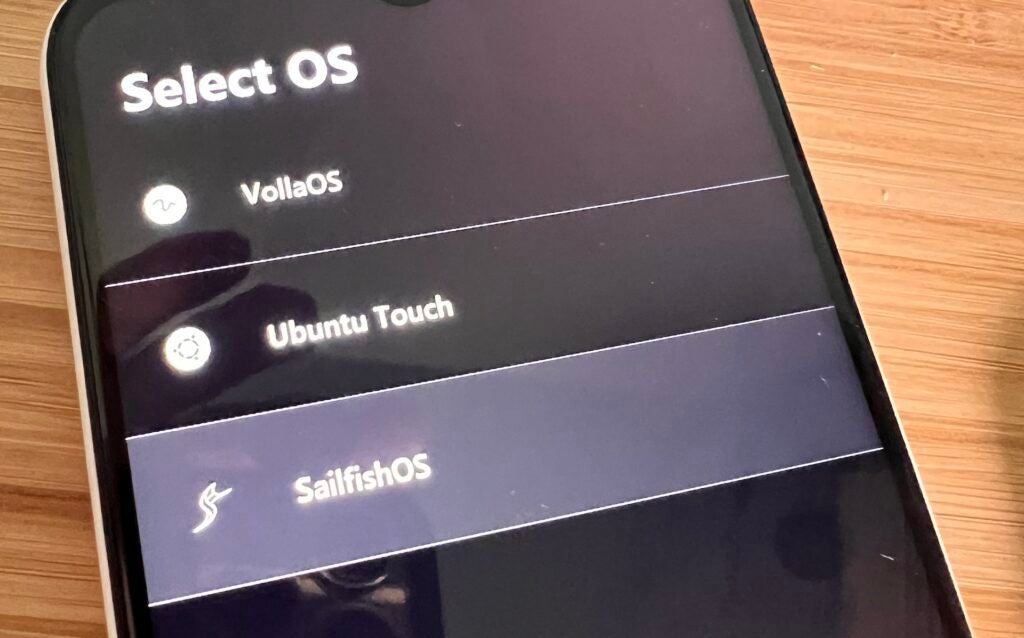
For the purposes of this review I tested Ubuntu Touch and Sailfish OS, among the most ‘mainstream’ of the options available, though more are on offer.
Starting with the experience of using Ubuntu Touch, everything you know about navigating a phone is upended, sometimes in confusing ways. There’s an app store, but as might be expected given this is a revived version of a ten-year-old Canonical project, there are only some test apps and no big names. There are some neat UI elements, but as a whole, it feels like it would be happier on a tablet than on a smartphone.
Sailfish OS is maybe more interesting, run by Jolla and crafted from the bones of MeeGo, developed and abandoned more than a decade ago by Nokia and Intel. This is a mobile-first OS and is built entirely around gestures. A few ideas have legs, including a pin screen with all currently running apps, a unified messaging hub and more. The problem of no apps remains, and in the version offered, there isn’t compatibility with Android apps as there is with Xperia devices running Sailfish OS.
Neither of these have any ambition to remake the mobile world. In a monoglot market of only Android and iOS, there’s no oxygen left for different operating systems. They’re instead curious toys to tinker with, interesting but sometimes punishing to use for every purpose.
An issue with running them from MicroSD cards is that even with a fast card, the memory speeds don’t match those of internal storage, so performance can be quite sluggish when using an ‘alternate’ OS…
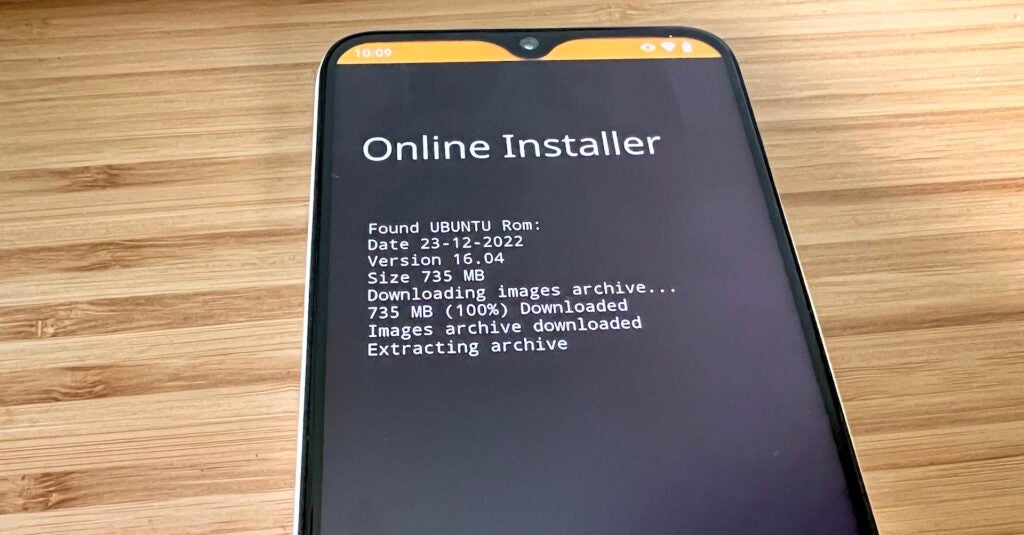
Coming to Volla OS and general performance, the Volla Phone 22 runs a MediaTek Helio G85, and sports 4GB of RAM and 128GB of memory by default.
As before, Volla OS is a fork of Android, specifically Lineage OS, the inheritor of Cyanogen OS’s mantle. The G suite of apps is completely absent, and this is a selling point of the phone. If you are concerned about corporate overreach, this device is a small potential antidote.
In use, it is interesting. The UI centres around ‘Springboard’, which works like a universal search function. There’s an app drawer that looks at your most used apps, displaying them first, a built-in RSS feed and more. Everything uses the Volla colour scheme, monochromatic first with an occasional splash of red.
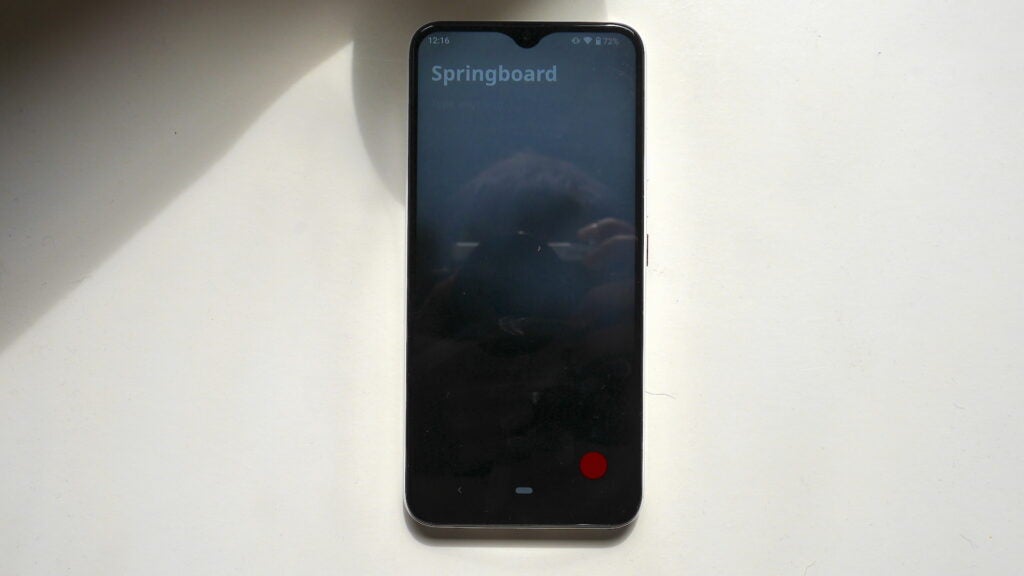
Swiping through the operating system and general basic tasks proved to be no issue, as you might expect of a modern smartphone. Then we come to the question of apps.
Typically, this is where any ‘alternate’ operating system dies a death, unable to offer anything close to the overwhelming quantity and quality of offerings on the Play Store or the App Store. Volla doesn’t really need to try, loading two app stores onto the phone by default, F-Droid and Aurora.
The former is an odd beast, containing a hodgepodge of open-source apps, some of which have seen recent updates, many of which won’t.
Most will head instead to the Aurora app store, which has every app you might need, from big names to small names, including all social media apps, banking apps and more. There’s the clincher that many of these require the Google Services Framework, which runs counter to the spirit of the device, but at least the option is there for those who want it.
Interestingly, through the review period an update arrived, taking the core of the experience from Android 11 to Android 12, improving the look and the experience of Volla OS. What this also did was embed MicroG in the OS, an open-source replica of Google mobile services. This means that where previously a Google app wouldn’t work on the phone (i.e. YouTube), it now can, though what you will make of that is up to you.
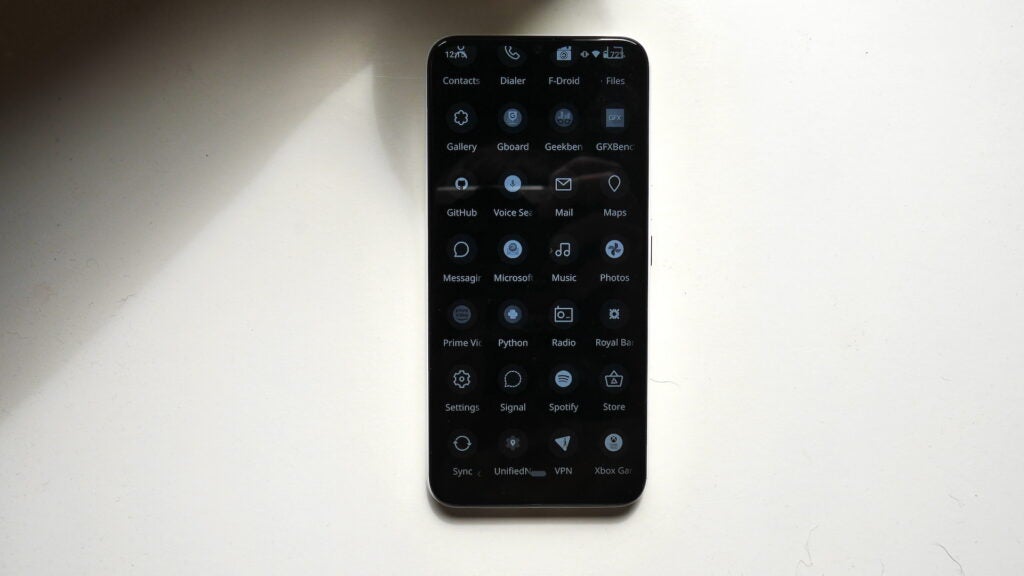
One slight hiccup is the chipset used for the device, which is an old one. The Volla Phone runs a MediaTek Helio G85, a 12nm SoC first announced in 2020, and it is a little geriatric for some purposes. This is mostly borne out in benchmarks, where the device achieved a single-core score of 413 and a multi-core score of 1334. In other benchmarks the store proved to be the same; the Volla Phone 22 isn’t a powerhouse.
Gaming performance was a moot point, this isn’t a powerful gaming device, but then there are few games available for it to run. If you want a gaming phone, there are much better options available elsewhere.
Battery life
- 4,500mAh battery
- Wireless charging
- Charges over USB-C
Battery life on a device like the Volla Phone 22 is difficult to measure when compared to other phones. Regardless of how it is used, it won’t have the same checks and balances going on in the background as an Android or iOS device. It is in a competition against itself.
Taking a standard day, reading online, taking calls and listening to music from the SD card during the day, by 5pm I had 70% left, with enough juice to then make it to 5pm the following day. So far so good.
This is with the caveat that the above didn’t include video or other more draining activities, due to the sometimes incompatibility with certain apps. So with the proviso that you might not be able to follow a normal use pattern, the Volla Phone 22 is capable of great battery life.
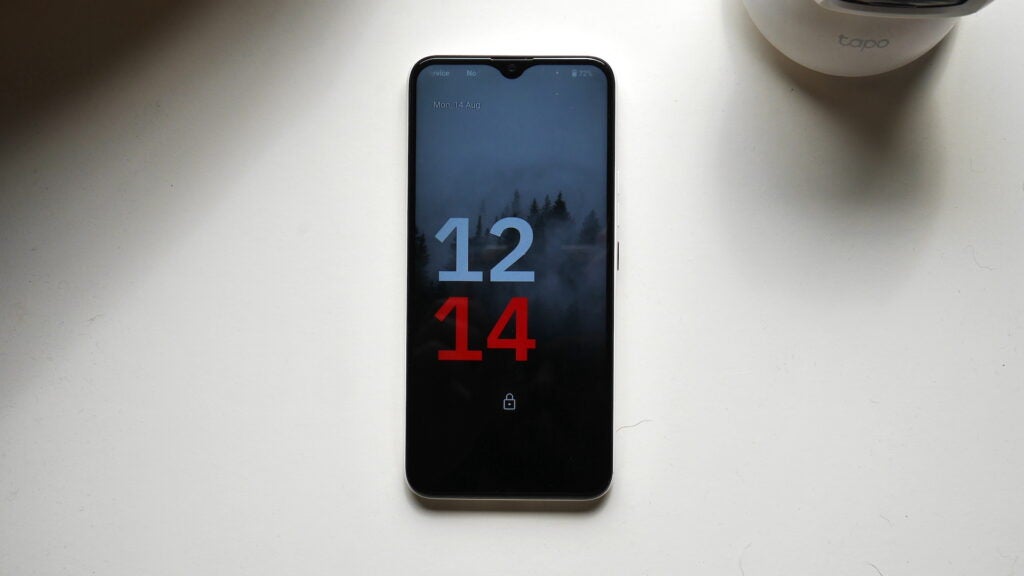
With MicroG active and following a more ‘typical’ use pattern of YouTube, WhatsApp, Spotify and more, this saw us reach 60% at 5pm the first day, needing a charge by 5pm the next day. So regardless of how you use the Volla Phone 22, you should reach a second day.
Fast charging is a separate issue; there isn’t any, certainly that I was able to activate. A full charge from flat therefore took over three and a half hours, which won’t be an issue for those who charge overnight, but for others, it may be a dealbreaker. There is wireless charging at 5W, though that suffers from the same speed issues.
Should you buy it?
You like to tinker with software: The ability to run a range of mobile operating systems gives the Volla Phone 22 unmatched customisation.
You need a powerful phone: The MediaTek Helio G85 is showing its age in 2023 and is easily outshone by budget alternatives.
Final Thoughts
The quest for a ‘privacy first’ phone is an old one, maybe starting with the release of the Black Phone by Silent Circle in 2014. Volla is definitely a far superior phone to most of these options, at least giving users the option of using some Google services if they want to.
It has looks straight from 2016, functionality that will get the pulses of some racing, not others, and a relatively high price tag at £389/€452. The competition, if it can be called that, offers more usability and capability across the board, but this is not a device intended to compete.
If you are someone who likes to tinker and likes the idea of less Google in their life, the Volla Phone 22 is about as usable as a privacy-focussed smartphone that has been produced for some time. For most people, it won’t be an option due to its quirks, though for business travellers the combination of great battery life and hot-swappable batteries might be a compelling one.
The Volla Phone 22 doesn’t have the best screen, great performance, powerful speakers or any of the hallmarks of a usual ‘recommended device’. What it does have is interesting software, lots of potential for tinkering and truly great battery life. While it might not succeed in being a perfect modern smartphone, it offers a change of pace and direction that most can’t – if that holds your interest then this might be the device for you.
If not, you’d be better serviced by taking a look at our selection of the top cheap smartphones.
FAQs
A charger is not included with this phone.
It does have a headphone jack.
It does have 5W wireless charging.
Jargon buster
LCD
The type of display usually used on cheaper and mid-range devices. Lacks the punch on an OLED panel.
mAh
An abbreviation for milliampere-hour and a way to express the capacity of batteries, especially smaller ones in phones. In most cases the higher the mAh, the longer the battery will last but this isn’t always the case.
Refresh Rate
The number of times the screen refreshes itself per second.

